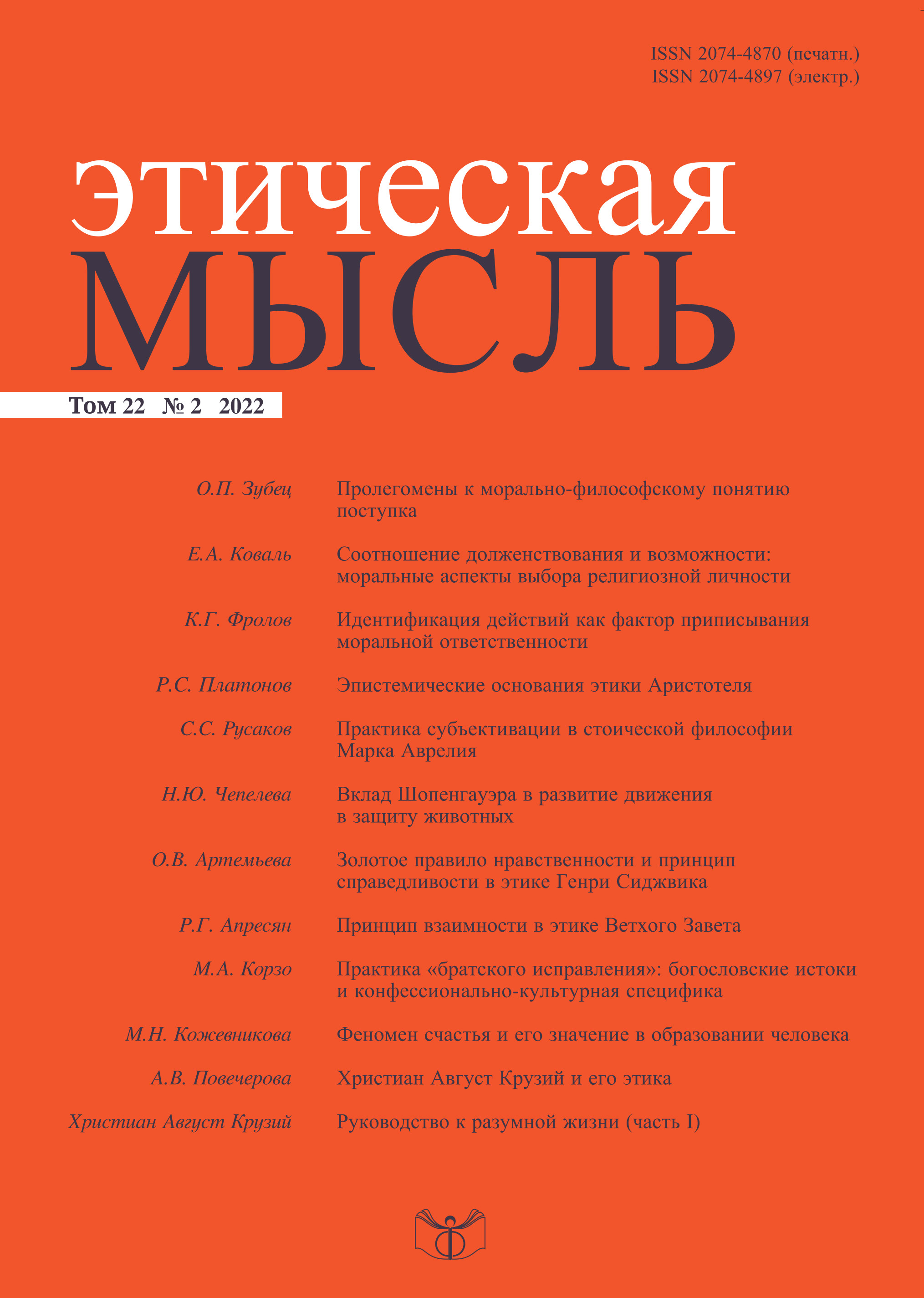Schopenhauer’s Contribution to the Animal Welfare Movement
DOI:
https://doi.org/10.21146/2074-4870-2022-22-2-74-85Keywords:
Schopenhauer, ethics, animals, animal studies, vegetarianismAbstract
The article analyzes the contribution made by Schopenhauer to the development of the movement for the protection of animals. The author reconstructs some details of Schopenhauer’s interaction with the founder of the first German societies for the protection of animals Ignaz Perner. The article discusses the criticism of the Cartesian worldview and Christian morality proposed by Schopenhauer, with which Schopenhauer associates the lawlessness of animals that was relevant for his era. The article critically reconstructs some of Schopenhauer’s judgments regarding the reflection of the status of animals in language, in the Bible, and in legislation. The author compares the status of animals in Schopenhauer’s philosophy and in classical German philosophy on the example of Kant and Hegel. The article discusses the criticism of Kant presented by Schopenhauer for “idolatry of reason”, on the basis of which Kant, following Descartes and Christian morality, continues to be in error regarding the existence of an ontological gap between man and animals. The article gives a detailed reconstruction of Schopenhauer’s doctrine of animals, including the idea of the animal kingdom as one of the stages of objectification of will, the interpretation of the aesthetic image of animals and the creative drives of the animals themselves, and the justification for the need for compassionate behavior towards animals. The article criticizes the widespread perception of Schopenhauer as a vegetarian, and provides Schopenhauer’s own arguments about the necessity of eating meat. The article discusses Schopenhauer’s doctrine of animals in the context of modern animal and vegan studies. The article concludes that Schopenhauer was the first European philosopher to offer a popular theoretical justification for the need for an ethical attitude towards animals, which formed the basis of the animal welfare movement in Germany.









